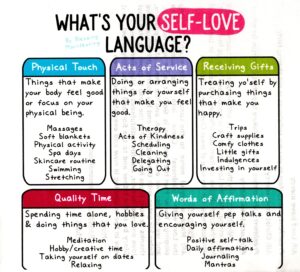For those interested in the sex act, itself, I’d advise you to seek out relevant texts and/or a fully qualified specialist sex therapist. It’s a topic best worked on with other people, even if that is not always necessary.
The NHS has some useful guidance on the topic.
It may seem odd that a psychologist has taken over five years to make this explicit mention of sex in his website. My simple excuse is that:
The Internet: is not the best medium for discussing sex compassionately
That’s because it is a very personal topic and an impersonal Internet does not have a good record for helping humans deal with personal matters. A medium thriving on anonymity is not well suited to fostering the intimacies involved in sex.
Sex is a topic, and an activity, that highlights sameness in humans (like all mammals, humans have a drive to reproduce, even if individuals do not do so). Our uniqueness is in choosing how to do it – alone, and/or in a twosome and/or in a more-some, with a wide range of preferences.
There are few rules to help us decide how to be sexual, although laws exist to contain some behaviour. Sadly, breaches of those laws too often become triggers of post-trauma symptoms.
So it’s going to be tricky to respect individual preferences, prevent harm, get a result and still have a good time.
Where to start
There are few general things to say about human beings:
They are mammals;
They are meaning-making mammals,
They are social, meaning-making mammals.
They are sexual, social and meaning-making mammals.
These four features, the list could go on, offers threads that compete one with another. The tension can lead us to play Games, in the Transactional Analytic sense of that word.
For instance, how do humans – tending to prefer survival in groups for the most part – do so without making an exhibition of themselves? Making meaning about our sexual selves is too often hampered by shame.
How can the tension between those different threads I’ve listed be managed?
Perhaps CONTROL is a unifying feature. If, for the most part, life is a seemingly mysterious, random, unthinking and unpredictable experience, can I develop control mechanisms to make my life appear less random, more explicable and less unpredictable?
Here, then, is a starting point: humans are sexual, social, meaning-making mammals tending to ‘control freakry’. At the very least, us humans struggle to obtain some semblance of control over who they are at the best of time ; without considering the environment into which we are thrust. It’s all rather intricate, is it not?
Now all this is very ‘global’ so let’s get down to specifics.
Sex and the scenic route
As far as I am concerned, the scenic route is still relevant to this sensitive topic. Small defeats crop up rather quickly, even in a newer relationship. The tricky bit can be that both small victories and small defeats pass by, unnoticed.
Recently, I watched the Di Caprio and Winslet film Revolutionary Road. You can find a good few examples of such missed opportunities should you get to see it.
These unintended consequences can create potentially large problems, and ones that makes it particularly important to be open and honest about the ‘rocks’ that you see on your shared scenic route.
A first move or two
Take a look at: Special Time: one very specific safe experiment
Then consider this extract from: What is seen as helpful in therapy. Could it be helpful to you, now? You may find the whole page useful but here is an extract I’ve taken from that page.
“What are the implications from this for designing small, safe experiments?
- Frank discussion may be needed with therapists, spouses and other important people in your life.
- Feelings need to be expressed openly, even though this is risky. That cannot happen unless I have safe place to express myself as I move along the ‘scenic route’ of change.
- Relationships, and not just ‘professional’ ones, need to be mutually examined.”
I want to focus on how to use experiments to help create your own joy and pleasure and self-expression. I have stopped using small, and safe now as these are tricky terms to use given what I say in the quote, above.
There is an element of unsafeness in most sexual steps we might choose to take, even when we talk about sex.
Therefore, I need to return to the important quality of curiosity. This quality might take in sensitivity. passion, respect and genuineness. This may resonate with person-centred professionals, but there are problems arising even then.
What can be drawn into our lived experience when it comes to a sensitivity to ourselves and intimate partners in our lives?
Let’s look at this in more detail.
SOME MORE EXPERIMENTS
PART ONE – SPECIAL TIME: planning and thinking are still important even though the focus of this page may be on feelings and sensations. The Special Time safe experiment can be an helpful beginning. it gets two or more people acting with consideration and thought. It takes a lot of practice and, maybe, a good few small defeats to make this less than common-sense way of communicating work fluently and in a relaxed way.
PART TWO – EXPECTATIONS; when your confidence in brief moments of Special Time have been established consider what is it you want from you relationship. The ‘Expectations’ small, safe experiment may help here. I’d recommend working on the matrix separately – before any Special Time. This means you can manage any surprises or puzzles using Special Time ‘rules’ to manage how your conversations proceed.
PART THREE – COMMUNICATE TOGETHER: these two pages offers some suggestions on how communication can work better, in the certain knowledge that it can go wrong. Does this page offer you some escape hatches!!
…. and now for some more lines to follow:
PHYSICAL CONTACT: Another relevant experiment can be found at: https://your-nudge.com/physical-contact-whats-right-for-you-and-you/ You may like to start with my brief question located at the very bottom of this page.
THE FIVE LOVE LANGUAGES
These safe experiments were introduced to me by some visitors from America. here is a link to the details: https://www.5lovelanguages.com/
and here is a summary of the SELF-LOVE languages:

….. after all, you cannot expect to offer anything to some-one else, if you cannot offer it to yourself!?
On the website itself you will learn more about possibilities I have touched already – quality time, physical touch and affirmations.
There are other possibilities listed above under ‘Acts of Service’. Then there is some challenging talk about ‘gifting’ as well. Can you negotiate some more of all these possibilities with some-one else? If that is of interest, does Dan Newby’s work interest you?
There is a quiz on the Love Languages website that usually gets things going. As I see it, the important thing is for you to find out what is a bit of fun, and what needs to be taken seriously.
Are you ready to find out the difference as your partner(s) sees it, now? I like the welcome page that says: “when we feel disconnected from the people we care about, life is a lonely place”. It does not have to be like that. What are you willing to negotiate to make sure it is not so?
Finally, here is a resource you may find help, especially as you develop Special Time, as a safe experiment: take a look at:
….. where you can find 125 questions relevant to sex in your life. I like the last one: “If you were the author of a book on sex, what would its title be?” It’s likely to connect to the Script we develop through our whole life.
You may find answering her 125 questions not small experiment. Maybe try a few! As ever, you can take you time. What about you and your partner finding the five most important questions to you, yourself, in order to explore your mutual expectations and, maybe, finding common issues as a first step to negotiating a common purpose for your relationship.
Leads to consider
So a reasonable route to find is …..?
How will you know you have made some progress?
Does John Roedel help you know what your partner(s) might need?
